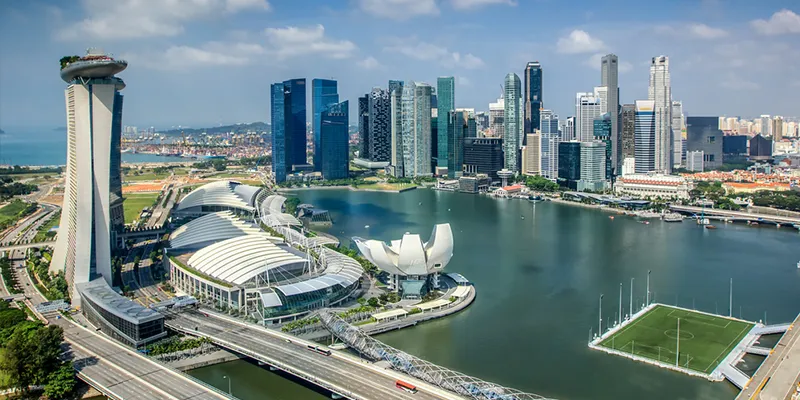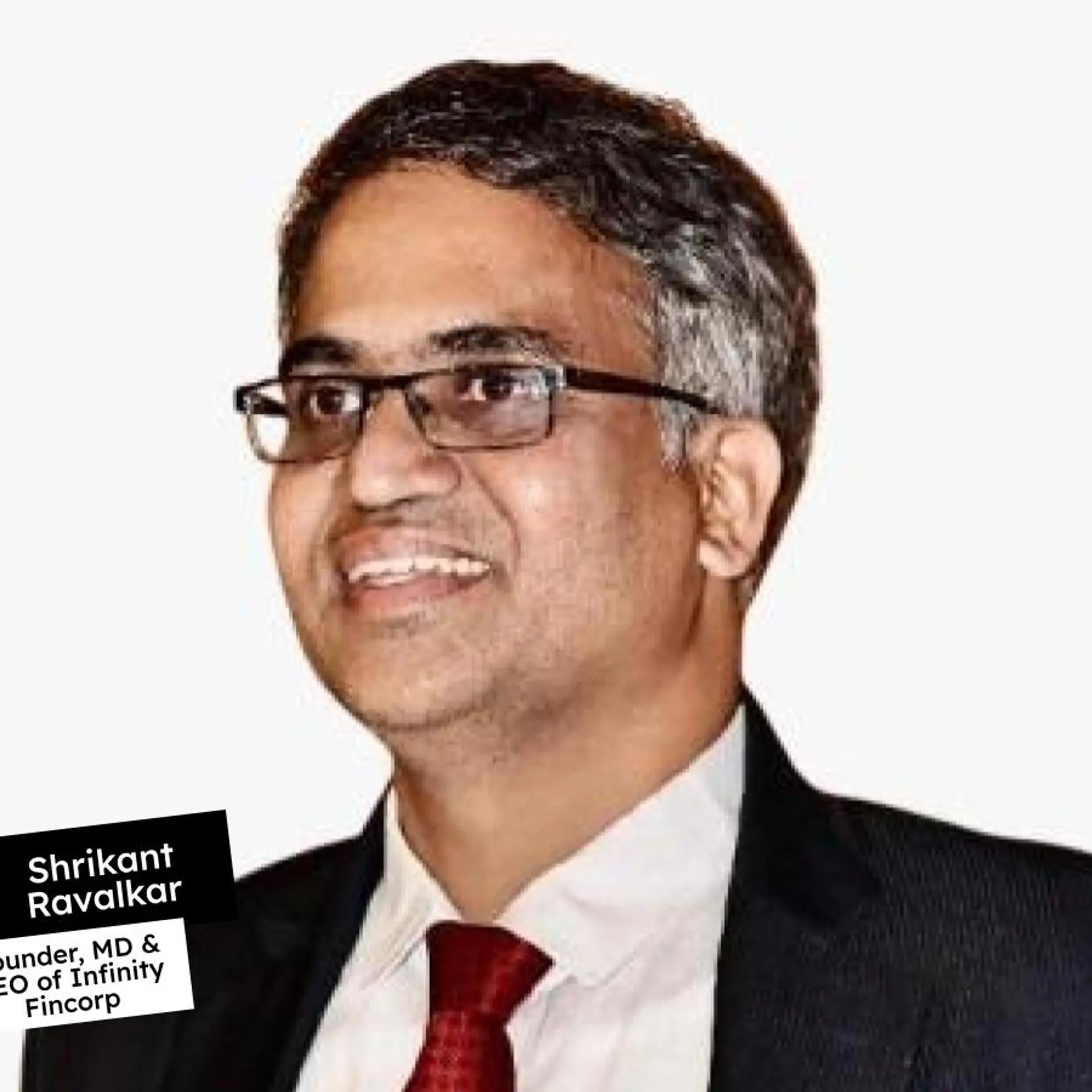Accelerator story: 10 things you can learn from FinMitra’s day out in Singapore
Singapore is emerging as a hub for a range of startups from India that wish to go global, particularly targeting the markets of Southeast Asia. There are ups and downs in the journey, but the experience can be well worth it!
by Bhargavi S., Founder, FinMitra

I held my breath, not interested in the snacks laid out. One by one, they announced names that had made it to Asia’s top fintech companies of 2016 to be accelerated by The FinLab. When they called FinMitra, I was stunned and silenced.
FinMitra is a financial services platform that helps investors access mutual funds, government deposits, and schemes and insurance. We have strong roots in financial inclusion, empowerment, and literacy.
FinMitra was the only Indian startup that was selected into The FinLab, a Singapore-based accelerator joint venture of SGInnovate (wholly owned by the Singapore Government to power entrepreneurial potential) and United Overseas Bank (SGD 35 billion market cap). Startups from across 25 countries had applied and India was the second largest applicant pool.
For the FinMitra team it was a validation of the idea, the passion, and the execution thus far. Deep inside was a question, could a business just newly born in India, grow and compete globally?
As an early-stage startup, credibility and validation is one of the biggest challenges – to oneself, one’s team, and to the external world. Coming from a geography like India, in the fintech space, the sheer possibility that yes, we could go international seemed audacious to me. It tore away mental limitations that I was not even aware that I had!
Once you are accepted into an international accelerator, then domestically there is a lot more recognition of your potential. And being part of a blue-chip accelerator like The FinLab programme enhances your credibility.
While we were delighted to be hand-picked, the timeline from selection to the start of The FinLab programme, in May, was hardly a couple of weeks. Visas, tickets, and accommodation were done in a rush. And somehow, I landed breathlessly in Singapore.
For those of you familiar with Singapore, you already know it’s a paradise of organised business and high finance, clear and friendly regulations, and great infrastructure. The FinLab team worked out of a co-working space at Ayer Rajah Avenue and right in the middle of the startup hub of Singapore, amidst several VC firms and several other startups.
The office space is spacious, bright, well ventilated, and colourful. In fact, back then it even inspired me to write a post about co-working spaces versus having your own office space. Most importantly, its right next to a large affordable food court which also has an Indian restaurant!
On a personal note, being a vegetarian at The FinLab meant that I couldn’t eat the meals at most of the events. In one of the early events, with earnestness and genuine confusion, they said “…but there are vegetables in the rice” – the rice also had had prawns in it. But, as The FinLab team got to know us better, they took special care at events to order pure veg food especially for us.
I spent three months at The FinLab and the insights, opportunities, and relationships are the most priceless takeaways. Of course, I had my share of challenges and wrong notions that were righted. Finally, when I look back almost a year later, would I do it again? The answer is at the end of this post.

If you are looking at a global accelerator programme, I’d like to share some things with you that can help you make a better decision.
- Will your nascent startup benefit from international opportunities? Some business, are born to serve a uniquely local need. If you are building a vertical solution such as P2P lending, tax platform – ideas that stem from local regulations, local demographics, etc., you should think twice. In fact, as Manish Singhal from Pi Ventures mentioned, if your idea is a horizontal solution, say security or analytics, going international early is easier.
- The FinLab is an accelerator with UOB, an international bank as its founding partner. For FinMitra that meant access to experts from the bank, the bank’s data set, and being able to tap the bank’s market reach – these were key decision-making criteria. Similarly, you have to evaluate what you can gain from the programme.
- In case you are building a B2B fin-tech solution, and want to get a bank on your team, here is your chance to work with UOB and co-build the solution with them.
- B2C solutions face notorious difficulties in achieving cost-effective traction, so going to market on the back of a bank network is worth its weight in gold. But yes, the bank will ask you to meet high standards of regulatory, compliance, and negotiate hard and long.
- Singapore as a wealthy English speaking country is a good place to pilot a B2C revenue model. The consumers are used to paying for services and products – unlike in India, where it is like wringing water from stone!
- The FinLab, working closely with the government of Singapore, works hard to arrange Entrepreneur Visas; so if you’d like to move to Singapore for a year or two and build your business there, this would be a supportive launchpad.
- The Monetary Authority of Singapore (MAS), which plays a role somewhat similar to the RBI, is very encouraging of fintech startups. It aspires to put Singapore on the global fintech map and benchmarks itself to higher ranked peers like London. MAS has created a regulatory sandbox, where fintech companies can explore and go-to market without worrying about falling foul of regulations. And, in case you still want to meet MAS and get their views, The FinLab very kindly sets up meetings, either at their office of yours. Can you imagine that now?!
- Singaporeans themselves are of the view their domestic market is small, and are constantly striving and encouraging you to use Singapore as a gateway to Asia-Pacific – whether Thailand, Vietnam, Indonesia or Malaysia. It’s also a good place to access China, if you have the courage!
- In case you have crossed the idea stage and have a team based in Indian or have already have traction locally, you have to think through how you are going to nurture your local operations, even as you are physically present in Singapore, opening new doors there.
- A super important aspect that you should keep in mind is does the accelerator programme take equity? And do you get cash in return? Or is it to be given only in lieu of advisory and various services?The FinLab programme offers cash of SGD 30,000 for six percent of equity – which is not a whole lot, but is in line with some other global accelerators. It helps you cover costs in Singapore and have something left over to use carefully. Then, there are a whole lot of other perks like free co-working space in Singapore for nine months, access to software, access to bank data, opportunity to partner the bank’s top management in solving problems and other precious stuff.
Giving up or not giving up equity is a personal choice. And personally for me being able to say that reputed organisations have an equity interest in us, was a matter of pride. Issuing equity to The FinLab and having them as an investor, for me was a huge plus point.
Apart from that, there are a lot of grants available in Singapore, though you may need substantial local employees or local ownership to be eligible, but it’s something that makes it attractive for local VCs to fund a startup.
The FinLab team is fair, approachable, and warm – and true to the startup eco-system they are ever open to feedback. They work alongside you even when you are on opposite sides of the negotiating table.
So, would I live The FinLab experience again? Yes! I would do it again, no questions asked. This time around I would try and do it even better!








